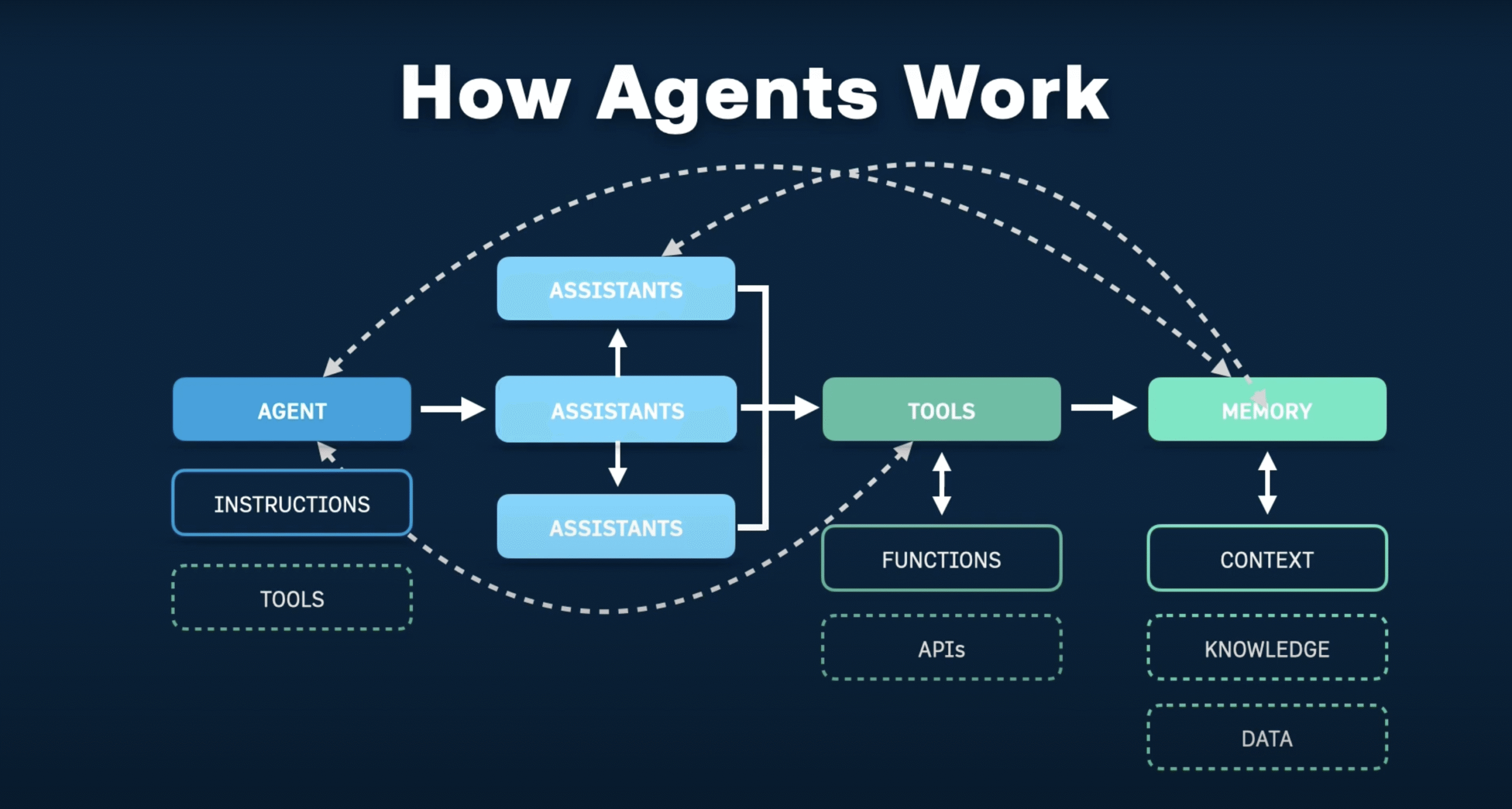Latest AI Tools, Trends & Trusted Reviews!

The world of AI is evolving fast, and it’s no longer just about chatbots or image generators. The next big leap is AI agents, systems that can reason, plan, and autonomously take action to achieve a goal. Think of them as digital coworkers that don’t just follow instructions, but think, act, and adapt.
Whether you’re a business leader, developer, or tech enthusiast, understanding AI agents is essential for staying ahead in the future of technology.
Unlike traditional AI tools that respond to single commands, AI agents operate autonomously across multiple steps:
This loop allows AI agents to adapt, improve, and perform complex tasks without constant human oversight.
Generative AI like ChatGPT is powerful—but it only reacts. AI agents are proactive, capable of planning multi-step workflows and making autonomous decisions. This is what sets them apart and why they are poised to transform industries.

“AI agents are not only a way to get more value for people but are going to be a paradigm shift in terms of how work gets done.”
Imagine an AI agent analyzing patient records, lab results, and wearable data to detect potential risks. Specialized systems like biomni, a biomedical AI agent, are paving the way for faster research and personalized medicine.
From analyzing satellite imagery to coordinating logistics, AI agents can process massive datasets and make critical decisions faster than humans. Military and security applications are just the beginning.
The biggest impact may be in personal productivity. AI agents can manage emails, optimize schedules, negotiate bills, and even generate SEO-optimized content. Autonomous digital assistants are making mundane tasks effortless.
The world of artificial intelligence is moving at lightning speed, and with new advancements come new terms that can sometimes be confusing. We often hear “AI agent,” “AI assistant,” and “bot” used interchangeably, but there’s a significant difference in their capabilities, autonomy, and purpose.
To clarify these distinctions, here’s a detailed comparison table:
| Feature | AI Agent | AI Assistant | Bot |
|---|---|---|---|
| Purpose | Autonomously and proactively perform tasks | Assisting users with tasks | Automating simple tasks or conversations |
| Capabilities | Can perform complex, multi-step actions; learns and adapts; can make decisions independently | Responds to requests or prompts; provides information and completes simple tasks; can recommend actions but the user makes decisions | Follows pre-defined rules; limited learning; basic interactions |
| Interaction | Proactive; goal-oriented | Reactive; responds to user requests | Reactive; responds to triggers or commands |
The rise of AI agents is creating new business opportunities and driving economic innovation. Investors are eyeing startups building the infrastructure for autonomous systems, and industries are exploring AI agents to optimize workflows, reduce costs, and scale operations.
The era of AI agents is about augmentation, not replacement. By handling repetitive, multi-step tasks, AI agents free humans to focus on creativity, strategy, and decision-making.
At FutureTools, we’ll continue to track how AI agents are reshaping industries, highlighting the companies and tools that matter most in this rapidly evolving space.

Ahaa, its nice dialogue on the topic of this piece of writing at this place at this blog, I have read all that, so at this time me also commenting here.